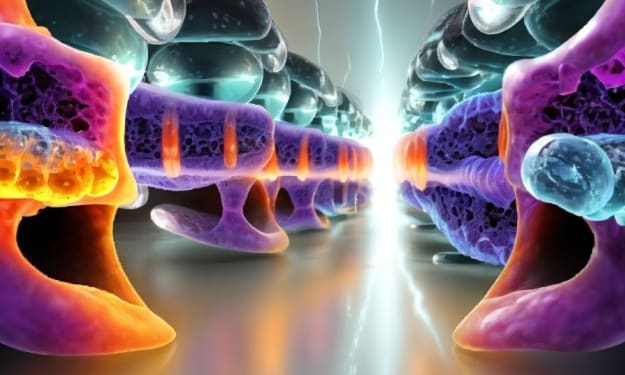How To Not Hate People.
And by people, I mean ourselves.
I was on the bus yesterday, ready to murder the man standing next to me with his mask down by his chin. You’ve found yourself in something similar; consumed by anger at how stupid someone can be. You’ve followed rules your whole life and just can’t help but feel vitriol when you see someone breaking them, as though they are somehow above these rules.
This feeling comes from a disconnect between how we believe the world should be and how the world is. It’s frustration, a mild delusion we allow ourselves. If it began and ended there, there would be no problem, but unfortunately we take these feelings and attach them to others, reasoning that they are the source, and thus taking it personally.
When we’re aware of every little way others disappoint us, it’s easy to take short cuts and assume that it’s human nature, turning us into misanthropes, hating humans.
As I sat there, debating whether to say something, shout, punch, or just passive aggressive take a picture to share online and shame (as some have done with dick-nosing), I instead focused on my breathing, reminded myself I was fine, that no one is perfect, and that no matter what happens, I will eventually be in my safe place (back home in my girlfriend’s arms).
The guy got off the bus, and I had no ill will for him. Here’s how I’ve thought myself to stop hating people.
I am not perfect.
Imagine someone told you they were perfect. You’d think they were full of themselves, right? But if someone said you weren’t perfect, you’d either take offense.
This is ego. We’re thought not to think too highly of ourselves and yet at the same time we’re never thought to be humble either. We’re quicker to forgive those you boast who can back it up than those who are modest and overdeliver.
It’s taken me a long time to really accept that I am not perfect, because for a long time I felt like I had to. I felt like, because of my family, my upbringing, and the expectations placed upon me, I had to be as good as possible. While this helped me excel in many areas, it also caused me to become callous to others, expecting them to be capable of the same. It also meant that when I did fail, I not only beat myself up but sided with those who scolded me. As you can imagine, this is a bad trait going into what would become an abusive relationship when I was 26.
I hated myself and I hated others.
Accepting you aren’t perfect doesn’t mean you consider yourself less than. It allows you to step back and view your traits objectively, where you strengths and weaknesses lie, and that you are just as valuable (and flawed) as others. You don’t owe them what they don’t owe you. Likewise, you can’t place an expectation of perfection upon them. Is an expectation of cooperation reasonable? Sure, especially if you are being cooperative. But your cooperation shouldn’t be beholden to someone else’s behaviour.
Scarcity.
Our survival depended on us being monkeys with bananas. If you had enough bananas, you could provide for other monkeys, thus assuring your survival even more with big monkeys willing to protect you and sexy monkeys willing to sleep with you. But no bananas meant you were being likely to die or had to make do with the unsexy monkeys.
What can bananas and monkey sex teach us?
Our brains haven’t evolved much from those primitive beginnings. We’ve only had the brain capacity for tools for 2.6 million years. We’ve only been able to calculate and use numbers in the last 5 thousand years. Think about how in built the evolutionary drive to survive it. Now think about how incapable our brains are at relaxing in the modern world.
Our brains are brilliant at pattern recognition, especially for negative patterns. Ironically, our bodies become more alive from a threat on our lives than at any other point. The problem is we still have a brain looking for threats in a world currently in its most peaceful era. Despite crime, terrorism, and wars, you are more likely to die from internal factors (health, self-infliction, age, cancer) than external ones.
Even if we’re not in danger, we dream up these dominos of death; if I’m late for work, I’ll be fired, which’ll make me poor, which’ll make me starve, which’ll kill me, so I need to scream in a traffic jam or I’ll die! If this person doesn’t do their job the way I want, I’ll die! If I don’t say this person is worthless, I’ll die! If I don’t hoard my bananas, I’ll die!
But the truth is, you won’t die. Not like this. There is more than enough. Your brain is trying to trick you to keep it alive; it doesn’t care how well you live, just so long as it’s alive. You are not your feelings. You will get to work and you can explain traffic. And if you do get fired, is that a job you want to be working at? Where people can’t be realistic?
Personally.
Sticking with our primitive sexy monkey brains, the average human, at most, can only have one hundred and fifty meaningful relationship. That’s the size of a village. At any one time this could be family, friends, schoolmates, workmates, neighbours, friendly locals. So it’s natural for us to see any interaction we have with others as being a reflection of ourselves, how we’ve treated them, how they see we should be treated. So it’s to be expected that we’ll take everything personally in large towns and cities, where total strangers berate us, insult us, pass pushed us, litter, drink, fight, argue.
Ironically, we’re more passionate with strangers than we are with those we love. Our social nature drives us to reciprocate. You love me, I love you (random Barney the Dinosaur reference there). You hold a door for me, I’ll hold it for you. You tell me to get bent, I tell you where you can stick it.
This isn’t helped by the fact that on a small level, we’re aware we’re unlikely to see this person ever again (especially in a city), so we disassociate. We’re allowed to give a retort because we took it personally.
Stop it.
You are you. And how people treat you is not you. Yes, stick up for yourself, but, like with the other two points, understand that this person is not at their best, and that we are under no obligation to flex your muscle. In short, see it for what it is; someone who isn’t you did something you didn’t like. You can do something about it, you can move on, but what you can’t do is act like this is all on you. If you weren’t pushed out of the way, it would have been somebody else. It’s not right, but it’s also not personal. It’s a flaw within the other person. You can either respond by giving into your flaw, or you can work on yours, and at least then there’s one less flaw in the world.
...
Part of the reason we tend to hate people is because of something we don’t want to admit about ourselves; that we’re just as capable of being hated. This doesn’t mean you have to beat yourself up; that would be counter-productive. Rather learn to accept yourself in all your flaws and strengths, remind yourself your concerns are most trivial and not based in reality, and that not everything is out to get you.
About the Creator
Conor Matthews
Writer. Opinions are my own. https://ko-fi.com/conormatthews
Enjoyed the story? Support the Creator.
Subscribe for free to receive all their stories in your feed. You could also pledge your support or give them a one-off tip, letting them know you appreciate their work.







Comments
There are no comments for this story
Be the first to respond and start the conversation.